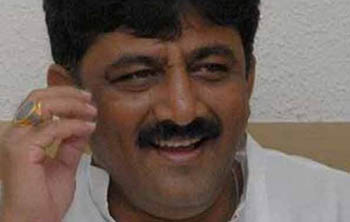Bengaluru, Apr 10: After Bharatiya Janata Party appointed former chief minister BS Yeddyurappa as its chief in Karnataka state, the Congress has intensified hunt for a powerful counterpart. The KPCC president G Parameshwara, who has completed the five-year term, has been continuing in the post even after being inducted into the State Cabinet as Home Minister. With the Congress high command busy drawing up strategies for the ongoing Assembly elections in five States, the Karnataka unit may have to wait at least till the declaration of poll results for the new captain to take on the mantle of the party.
With the Congress high command busy drawing up strategies for the ongoing Assembly elections in five States, the Karnataka unit may have to wait at least till the declaration of poll results for the new captain to take on the mantle of the party.
While several leaders have been eyeing the key post, the names of a few belonging to the dominant Vokkaliga and Lingayat communities are doing the rounds. Energy Minister D.K. Shivakumar, a Vokkaliga, who is presently campaigning along with party president Sonia Gandhi in Assam, is the front runner for the post. Mr. Shivakumar was the working president of the party when R.V. Deshpande was the KPCC president during 2008-10.
Sources said the high command may support the candidature of Mr. Shivakumar, who is also the fundraiser for the party. A sixth-time MLA, Mr. Shivakumar is also one of the popular leaders among the masses, particularly in the Vokkaliga belt of the old Mysuru region. Moreover, he has the blessing of senior leaders such as S.M. Krishna.
Among the Lingayat leaders, the names of Water Resources Minister M.B. Patil, IT/BT Minister S.R. Patil, and MLA Appaji Nadagouda are doing the rounds, in the backdrop of reports that the high command was keen on having a new party chief from either of the two dominant communities. As the BJP has appointed Lingayat strongman Mr. Yeddyurappa, the Congress may prefer a leader from the Vokkaliga community, said a party insider.
Search
DK Shivakumar is now front runner for Karnataka Cong chief post
[email protected] (News Network)
April 10, 2016




Comments
Don't give chance to any corrupt leaders Congress will lose thier image and status in strong hold Karnataka.
Add new comment